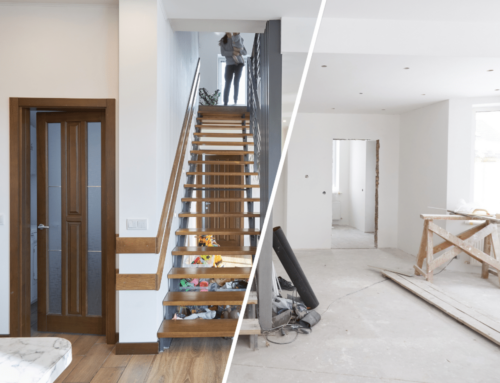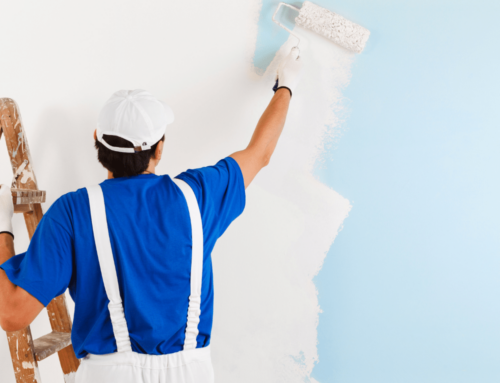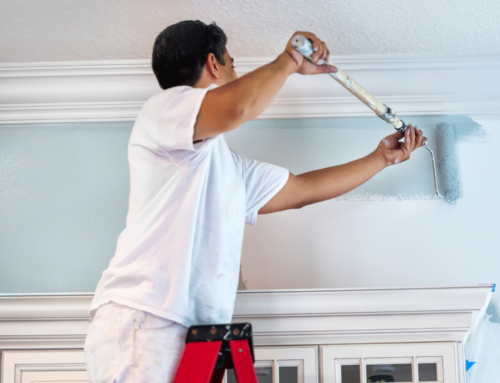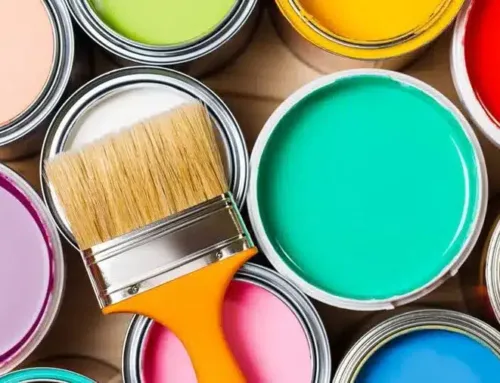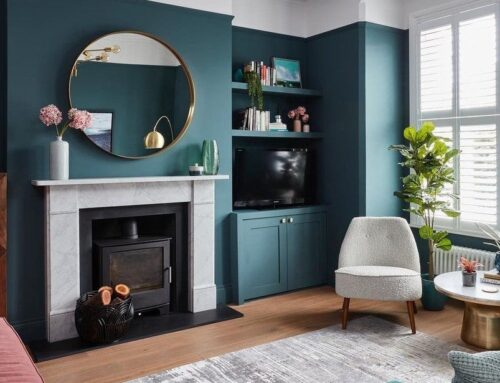When you are painting the interior of your building there is one advantage- you don’t have to deal with temperature extremes or harsh outdoor weather. This leads many to assume that you don’t have to take extra care or attention. Many business owners even consider speeding up the coating process by skipping the primer coat. They typically think that by using just one coat, the job will be done in half the time, right?
Yes, you can finish up faster by using fewer coats, but it’s crucial to take a second look at the real consequences of what is essentially a rushed job. Many don’t realize that interior coatings are usually designed to reach their full potential only with primer. Now it isn’t always necessary to use primer from the same brand, a base coat is a good idea.
All in all, primer serves as the foundation for a job well done. What many people don’t realize is that during the 2-3 day curing process the chemicals in the primer and topcoat interact in carefully calibrated ways. This essentially strengthens the performance quality of the topcoat and improves the appearance. It ensures the treated substrate gets maximum protection.
Reasons Why You Can’t Skip Primer in a Commercial Coating Project:
When done right, a professional commercial priming project will:
1. Prepare and Seal Unpainted Surfaces
Primer creates the ideal conditions for paint to work with a surface, enabling more uniform distribution and better adherence. This is especially useful for porous surfaces which might otherwise fail to take paint correctly. Primer should always be used for new drywall painting and repainting after drywall repair. Uneven surfaces and those that have not been painted before also benefit.
2. Help Paint Adhere to the Surface
Superior adherence means the coating is more effective when dealing with environmental pressures such as moisture, which can affect the interior of any building. The primer’s chemical composition reacts to create a firm binding layer, typically through binder-rich resin ingredients. Even hard, glossy surfaces that typically reject paint will be much easier to work with with primer, curbing your odds of blistering and peeling.
3. Blocks Stains and Odors
Existing stains can easily bleed through many kinds of paint, even when several coats are used. Some ground-in odors, like cigarette smoke, have the same capabilities. Primer is the solution in tough cases like these. It blocks stains and other contamination in the lower layers of the substrate and prevents them from reaching the surface in the future. Ongoing maintenance to stop future stains becomes much easier, too.
4. Defends Against Moisture
Moisture is a perennial problem that can cause serious performance degradation for many low-cost commercial paints. It is most troublesome in bathrooms and kitchens, where humidity tends to be high for prolonged times throughout the day. Humidity can even activate stains and make them appear more prominent. Primer guards against these effects and can also reduce the prevalence of mold and mildew that flourish in warmth and wet.
5. Creates a Better Result
Primers ensure the best longevity and durability for your topcoat. Because paint goes on more smoothly and spreads better, project and maintenance costs can be reduced. Primer is also a superb way to ready the surface for a color change, particularly when you are going from a dark color to a lighter one. Primer can even be tinted, making it more compatible with your target color and potentially reducing the amount of paint you need.
For Most Commercial Painting Projects, Coating is Key to Greater Longevity and Value
A primer pretty much gives you the results of two coatings but all in one. It can impart performance qualities that you might associate with a premium waterproofing, rustproofing, or antimicrobial product. If you are concerned with saving time and money, then you don’t want to skip your primer because you risk leaving money on the table.
Coatings can also degrade faster when they are not supported by the correct primer. With this in mind, you can easily find yourself re-coating the surface in a short period of time. This can has potential to double, triple, or even quadruple your investment in the areas of concern. This will pretty much make up for the time spent on primer.
Even though the public and your consumers won’t know if you used a primer, they will notice when your building looks at its best. Primer helps you make a better first impression than the competition.
Some specialty coatings and surface treatments are formulated especially to reach their goals without primer. Primer has earned its place as an important step in preparing your surface. Be sure you plan out your commercial painting project so you have sufficient time for application of both the primer and topcoat.
Need a Painting Company in MA? Trust Michael P. McCarthy Painting, Inc.
Searching for a Painter Near Me or Painting Contractor Near Me? You have come to the right place for a professional painting contractor ma. We will handle all of the prep work for you. We are reputable company that will be sure to do a job that is perfect, professional, and clean. Call us today to schedule a free no obligation in home consultation or fill a form on our website.
Home Painters MA
Residential Painting Contractor


